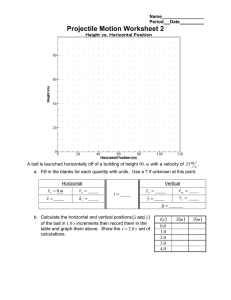Contents:


By assessing opportunities and risks, they should be able to run simulations on the data to predict future outcomes and determine which outcome is best pursued. Results are not prioritized by what calculations are the most correct but by their impacts on the desired outcome. The crucial key metrics taken into account are the net present value and internal rate of return .
Yavapai College Announces Accounting & Entrepreneurship … – Prescott eNews
Yavapai College Announces Accounting & Entrepreneurship ….
Posted: Sat, 25 Mar 2023 07:00:00 GMT [source]
This allows managerial accountants to perform exploratory analysis and nontraditional reporting that falls short of GAAP. As noted by the Accounting Institute for Success, many in this line of work become certified management accountants to expand their employment opportunities, though no specific certification is needed. The biggest practical difference between financial accounting and managerial accounting relates to their legal status. Reports generated through managerial accounting are only circulated internally. Each company is free to create its own system and rules on managerial reports.
Analysis and reports
By understanding the underlying principles of the two disciplines and how they contrast, you can develop greater financial intuition and make better business decisions. The accrual method of accounting, which is followed by most organizations, records transactions as they are agreed upon, as opposed to when they are completed. It allows for transactions to be made with credit or deferred payments, and operates under the idea that revenues and costs will smooth out over time to more accurately depict economic reality. This makes it possible to compare year-on-year growth of a company’s revenues, costs, and profits without factoring in one-off events, as well as seasonal and cyclical changes. Financial accounting is one of the several accounting branches and is generally concerned with financial statements. These financial statements document the company’s performance and information that may interest outside parties such as investors, customers, suppliers, or creditors.
- The data is then used in the evaluation process to compare against the budgets and deviations from the standards.
- Financial accounting is used to understand and observe the big picture of the whole business and see what else can be done compared to other companies.
- Debit the increase of assets and expenses and the decrease of liabilities and incomes.
- It becomes pretty evident that financial and managerial accounting define the process of collecting financial information and presenting it to the target audience in the form of financial reports.
- Both roles are integral to a company’s financial department, and it just depends on what you think fits you best in terms of responsibilities and opportunities.
- No, managerial accountants are not legally obligated to follow GAAP because the documents they produce are not regulated by GAAP.
Simultaneously, evaluation relates to looking at and learning from the past. It’s used for long-term planning and belongs to the data of the highest management level. As the company establishes a strategy or objective, it needs well-thought-through approaches to achieve the results. Management accountants can design specific systems so that actions lead toward achieving the goal of that strategy or intent. Tim Harford, Robert Half’s 2023 Salary Guide and AICPA & CIMA tell us about in-demand accountancy skills and effective data analysis to support business… Both types of accounting are essential for the smooth operation of an organization.
It’s up to a person to analyze the results and come to a conclusion about the next steps. This one controls information in the short-term period and stands on a junior level of management. Find out more about the finance and accounting hiring landscape by downloading the 2023 Salary Guide for free. And finally, they provide valuable financial information to support decision-making.
Video Explaining the Differences
In managerial accounting, the main focus will be on financial decisions that affect the internal workings of a company. For example, managerial accountants may help leaders decide whether or not to raise the cost of goods and services. Both financial reports and managerial reports use monetary accounting information, or information relating to money or currency. Financial reports use data from the accounting system that is gathered from the reporting of transactions in the form of journal entries and then aggregated into financial statements. Managerial accounting uses some of the same financial information as financial accounting, but much of that information will be broken down to a more detailed level.

Often a relevant cost analysis is used, and it focuses on examining the costs that differ between advertising alternatives for each product, ignoring standard costs to develop the most profitable one. Managerial accounting is a data-driven look at how to grow a small business and which actions should be taken. It often involves various financial metrics that are used to create a detailed report, including revenue, sales, operating expenses, and cost controls. The significance of this difference is that the information gathered in financial accounting must be only financial, while management accounting is presented by both financial and non-financial reports. As a Financial Accountant, you’d be responsible for ensuring business income statements align with strict reporting standards. You’ll also act as the main point of contact for tax, pensions, auditing, and other financial issues.
2 Distinguish between Financial and Managerial Accounting
The Ascent is a Motley Fool service that rates and reviews essential https://1investing.in/s for your everyday money matters. We’re firm believers in the Golden Rule, which is why editorial opinions are ours alone and have not been previously reviewed, approved, or endorsed by included advertisers. Editorial content from The Ascent is separate from The Motley Fool editorial content and is created by a different analyst team. But our editorial integrity ensures our experts’ opinions aren’t influenced by compensation. Compensation may impact the order of which offers appear on page, but our editorial opinions and ratings are not influenced by compensation. The Balance uses only high-quality sources, including peer-reviewed studies, to support the facts within our articles.

For example, in financial reporting, net sales are needed for the income statement. In managerial accounting, the quantity and dollar value of the sales of each product are likely more useful. Now that you have a basic understanding of managerial accounting, consider how it is similar to and different from financial accounting. After completing a financial accounting class, many students do not look forward to another semester of debits, credits, and journal entries. Thankfully, managerial accounting is much different from financial accounting. Also known as management accounting or cost accounting, managerial accounting provides information to managers and other users within the company in order to make more informed decisions.
Accounting is an important function that every business, irrespective of its size, should pay maximum attention to. Accountants and bookkeepers are responsible for compiling, measuring, and analyzing accounting records in the form of financial reports or statements for companies. Management accounting refers to accounting information developed for managers within an organization.

Financial professionals typically use reports like balance sheets and debt-to-equity ratios to help companies determine borrowed capital amounts. A financial analyst’s main duty is to examine data to determine outcomes and opportunities for business investments and decisions. Financial analysts will track and analyze financial processes for companies, support other departments, and use financial data to create budgets and forecasts. Financial accounting deals with the long-term financial decisions an organization may make. This differs from managerial accounting, which works with short-term and sometimes long-term goals that involve an organization’s internal financial processes. Both financial professions work with financial information in similar ways, but for different purposes and uses.
The two introductory accounting courses found in most business programs are financial accounting and management accounting. While both topics make up the foundational pillars of accounting, there are key differences between the two that you should know. Both finance and accounting are highly valuable for assessing a company’s position and performance.
Financial accounting is the process of recording, summarizing, and analyzing an entity’s financial transactions and reporting them in financial statements to its existing and potential investors, lenders, and creditors. The banking sector heavily relies on financial accounting, meaning that the financial statements used by banks are uniform and must adhere to a set of rules. Financial accounting reports need to follow strict guidelines and principles to comply with regulatory bodies. Accounting ReportsAccounting reports are created using a company’s accounting data to check ledger-by-ledger transactions over a given time period. Accounting reports also include financial statements such as cash flow statements, profit and loss statements, and balance sheets.
If a customer routinely pays late, amortization definition may reconsider doing any future business on credit with that customer. This differs from financial accounting, which produces and disseminates official financial statements for public consumption that conform to prevailing accounting standards. Managerial accounting involves the presentation of financial information for internal purposes to be used by management in making key business decisions. Managers need accounting reports that deal specifically with their division and their specific activities. For instance, production managers are responsible for their specific area and the results within their division.
How To Earn A Risk Management Degree – Forbes Advisor – Forbes
How To Earn A Risk Management Degree – Forbes Advisor.
Posted: Thu, 06 Apr 2023 20:07:06 GMT [source]
Financial accounting is concerned with knowing the proper value of a company’s assets and liabilities. Managerial accounting is only concerned with the value these items have on a company’s productivity. Financial accounting only cares about generating a profit and not the overall system of how the company works. Conversely, managerial accounting looks for bottleneck operations and examines various ways to enhance profits by eliminating bottleneck issues. This is particularly true of upper-level management jobs or senior-level positions in a company like CFO or corporate controller.
Both of these fields use reports and analysis to disclose accounting information to specific users. While the focus of managerial accounting is internal, the focus of financial accounting is external, with a focus on creating accurate financial statements that can be shared outside the company. The program provides a structured curriculum that touches on key aspects of financial and managerial accounting, allowing you to pursue a CPA or CMA after graduation. This unique MAcc program can be completed entirely online, allowing you to balance your education with other commitments. Financial accounting only deals with historical data on business performance and financial health, making accuracy and transparency a top priority.
Another definition of managerial accounting is that it is the process of compiling, measuring, analyzing, and interpreting accounting records for managers to make informed business decisions in the pursuit of business goals. Financial statements are used to look back at the data and are mostly concerned with the past, while managerial accounting is mostly concerned with the future. However, financial accounting vs. managerial accounting isn’t always so clear-cut. For example, if the financial statements are being used for the purpose of investing or applying for insurance, they still fall under financial accounting even though they’re surely looking toward the future.